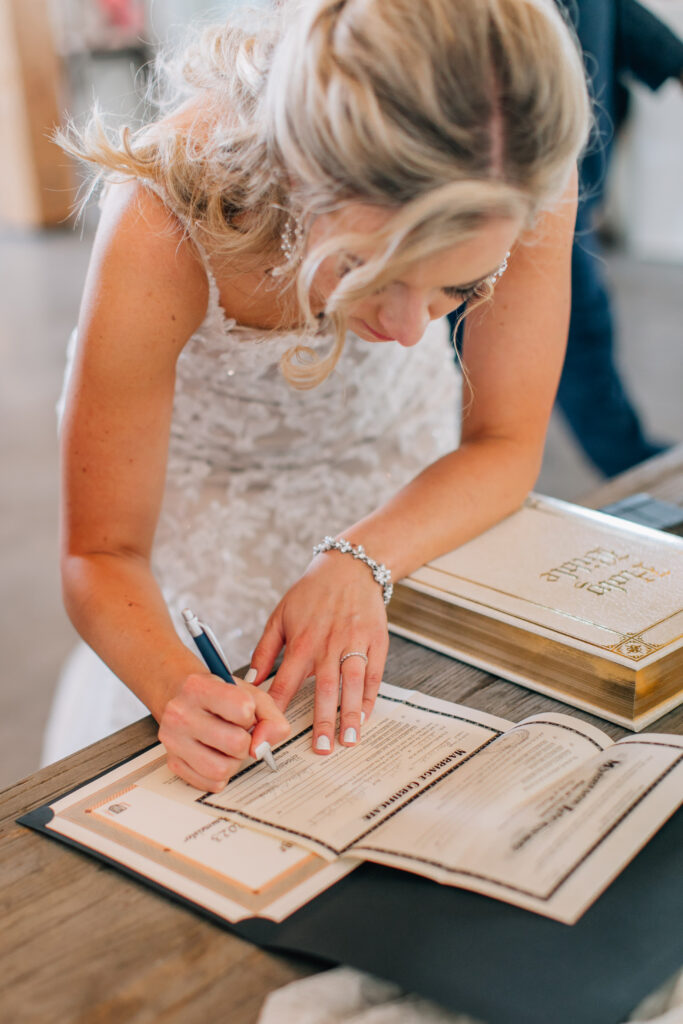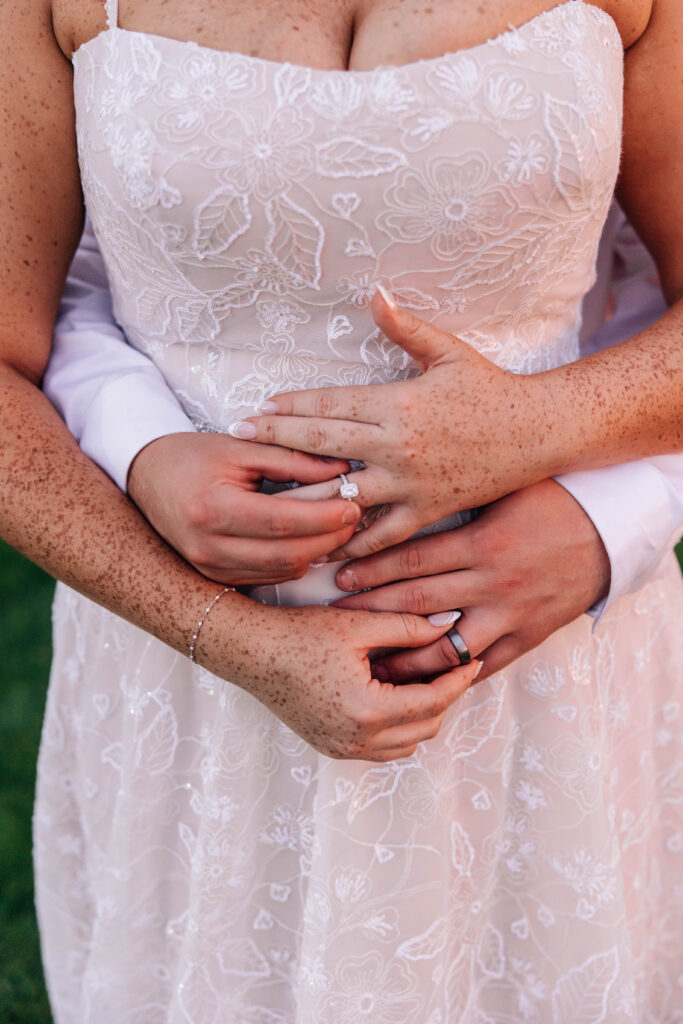February 9, 2024
Planning Your Big Day: Understanding the Timeline to Obtain a Wedding License

Congratulations on your upcoming wedding! Planning your big day can be both exciting and overwhelming, but understanding the timeline to obtain a wedding license is an essential step in the process. Before you say “I do,” it’s important to know the legal requirements and deadlines involved in securing your marriage license.
In this article, we will guide you through the steps of obtaining a wedding license, ensuring that you have all the necessary paperwork and complete the process within the designated time frame. From researching the laws in your state or country to gathering the required documents, we will provide you with a comprehensive timeline to make sure your wedding day goes off without a hitch.
Whether you’re planning an elaborate wedding or a simple ceremony, understanding the legalities involved is crucial. So, grab your calendar, take a deep breath, and let us help you navigate the timeline to obtain a wedding license. By the end of this article, you will have a clear understanding of what needs to be done and when, allowing you to focus on the joy and celebration of your special day.
Why is a wedding license important?
A wedding license is a legal document that grants you the legal right to get married. It is a vital part of the wedding process as it ensures that your marriage is recognized by the government and provides legal protection for both you and your spouse. Without a wedding license, your marriage would not be legally valid, and you may encounter various legal complications down the road.
Obtaining a wedding license also allows you to enjoy the benefits that come with being legally married, such as filing joint taxes, accessing spousal health insurance coverage, and making important decisions on behalf of each other in case of an emergency. It’s essential to understand the significance of a wedding license and prioritize obtaining one before your wedding day.
Understanding the legal requirements for obtaining a wedding license
Before diving into the timeline, it’s crucial to familiarize yourself with the legal requirements for obtaining a wedding license. While specific requirements may vary depending on your state or country, there are some common elements to consider. Generally, you and your partner must meet the following criteria:
1. Age: You must be of legal age to get married, which is typically 18 years or older. Some states may allow minors to marry with parental consent or a court order.
2. Identification: You will need to provide valid identification documents, such as a driver’s license, passport, or birth certificate, to prove your identity and age.
3. Marital status: If you have been previously married, you may need to provide documentation of divorce or death of your previous spouse.
4. Blood test: While many states no longer require a blood test, some may still have this requirement. Make sure to research the laws in your specific jurisdiction.
Understanding these fundamental requirements will help you prepare the necessary documents and plan your timeline accordingly. Now, let’s move on to the next step: researching the specific requirements in your state or country.
Researching the specific requirements in your state or country
Now that you have a general understanding of the legal requirements, it’s time to dig deeper into the specific requirements in your state or country. Laws regarding marriage licenses can vary significantly, so it’s essential to research the rules and regulations that apply to your location.
Start by visiting your state or county’s official website, as they often provide detailed information on the process of obtaining a marriage license. Look for a section dedicated to marriage licenses or visit the registrar’s office website. Here, you will find information on any additional requirements, such as residency restrictions, waiting periods, and application fees.
Take note of the specific documents you will need to bring with you when applying for a marriage license. These may include identification documents, proof of residency, and any required forms or certificates. Make a checklist of everything you need to gather to ensure a smooth application process.

Setting a timeline for obtaining a wedding license
Now that you have a clear understanding of the legal requirements and have researched the specific regulations in your state or country, it’s time to set a timeline for obtaining your wedding license. Ideally, you should start this process several weeks or even months before your wedding day to allow for any unforeseen delays or complications.
Begin by determining the latest date by which you need to obtain your wedding license. Check if there is a waiting period between applying for the license and receiving it. This waiting period can range from a few days to a few weeks, depending on your jurisdiction. Consider any other deadlines or requirements, such as premarital counseling or medical examinations, that may be necessary in your location.
Based on these factors, work backward from your wedding date and set a target date for applying for your wedding license. This will give you ample time to gather all the necessary documents, complete any additional requirements, and account for any processing delays. Remember, it’s always better to start early and have your wedding license ready well in advance.
Gathering the necessary documents and information
With your timeline in place, it’s time to gather all the necessary documents and information for your wedding license application. Refer to the checklist you created during your research to ensure you have everything you need. Here are some common documents and information you may need to provide:
1. Identification documents: This usually includes your driver’s license, passport, or birth certificate. Make sure these documents are up to date and valid.
2. Social security numbers: Some states may require you and your partner to provide your social security numbers or cards.
3. Proof of residency: If you are required to be a resident of a specific state or county, you may need to provide proof of residency, such as utility bills or rental agreements.
4. Divorce or death certificates: If either you or your partner have been previously married, you may need to provide documentation of divorce or death.
5. Witness information: Some jurisdictions require one or more witnesses to sign the marriage license. Check if this applies to your situation and gather the necessary information for your witnesses.
Take the time to gather these documents well in advance. Ensure that they are easily accessible and stored safely until you are ready to submit your application. Having everything prepared will save you time and stress as your wedding day approaches.
Submitting the application and paying the fees
Now that you have all the necessary documents and information, it’s time to submit your wedding license application. Visit the appropriate government office, such as the county clerk’s office or registrar’s office, to complete the application process. Be prepared to provide all the required documents, answer any necessary questions, and pay the application fee.
Some jurisdictions may require both you and your partner to be present when submitting the application, while others may allow one person to apply on behalf of both. Make sure to confirm this information beforehand to avoid any complications.
Be aware that there may be a fee associated with obtaining a marriage license. The cost can vary depending on your location, so it’s important to budget for this expense. Consider bringing cash or a credit card to cover the fee when submitting your application.
Waiting period and processing time for a wedding license
Once your application has been submitted and the fee has been paid, you will likely need to wait for a designated period before receiving your wedding license. This waiting period allows the government office to process your application and ensure that all legal requirements have been met.
The length of the waiting period can vary depending on your jurisdiction. It can range from a few days to a few weeks, so make sure to account for this time in your overall timeline. Use this waiting period to finalize any remaining wedding preparations and focus on the excitement of your upcoming celebration.
If you are concerned about the processing time or have any questions regarding your application, don’t hesitate to contact the government office where you submitted your application. They will be able to provide you with the most accurate information and address any concerns you may have.
Other considerations and tips for obtaining a wedding license
While we have covered the essential steps and timeline for obtaining a wedding license, here are a few additional considerations and tips to keep in mind:
1. Research online options: Some jurisdictions offer the option to apply for a marriage license online. This can save you time and streamline the process, especially if you have a busy schedule or live far from the government office.
2. Check validity and expiration: Make sure to check the validity and expiration date of your marriage license. Some licenses are only valid for a specific period, and you don’t want it to expire before your wedding day.
3. Consider legal assistance: If you have any concerns or questions regarding the legal requirements for obtaining a wedding license, consider seeking legal assistance or consulting with a lawyer specializing in family law. They can provide you with personalized guidance based on your specific circumstances.
4. Keep copies of your wedding license: After your wedding, be sure to obtain multiple copies of your wedding license. You may need them for various purposes, such as changing your name or updating your marital status on official documents.
By following these additional considerations and tips, you will be well-prepared and informed throughout the entire process of obtaining your wedding license.
Conclusion and final checklist for obtaining a wedding license
Congratulations! You have successfully navigated the timeline to obtain your wedding license. By understanding the legal requirements, researching the specific regulations in your state or country, setting a timeline, gathering the necessary documents, and submitting your application, you are one step closer to your dream wedding.
Before we conclude, let’s recap the key steps and create a final checklist to ensure you have everything in order:
1. Understand the legal requirements for obtaining a wedding license in your jurisdiction.
2. Research the specific regulations and requirements in your state or country.
3. Set a timeline for obtaining your wedding license, considering waiting periods and any additional requirements.
4. Gather all the necessary documents and information, including identification, proof of residency, and divorce or death certificates if applicable.
5. Submit your application and pay the required fees.
6. Account for the waiting period and processing time to receive your wedding license.
7. Consider additional tips and considerations, such as online application options and checking the validity of your license.
8. Keep multiple copies of your wedding license for future use.
By following these steps and staying organized, you can ensure a smooth and stress-free experience in obtaining your wedding license. Now, go ahead and focus on the joy and celebration of your special day. Congratulations, and best wishes for a lifetime of love and happiness!